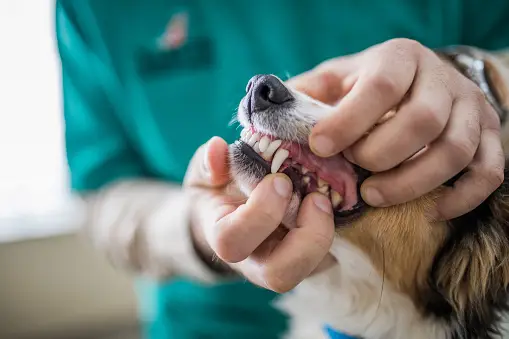Welcome to our comprehensive guide on holistic dog health practices, where we explore the benefits of taking a natural approach to your furry friend’s wellbeing. In this article, we will delve into various aspects of holistic care, including nutrition, exercise, alternative therapies, and preventive measures, all aimed at promoting a balanced and thriving life for your beloved canine companion. Discover the power of holistic dog health practices and learn how to provide your dog with the care they deserve.
Understanding Holistic Dog Health
What is holistic dog health?
Holistic dog health refers to a comprehensive approach to caring for a dog’s overall well-being, taking into account their physical, mental, and emotional health. It emphasizes the balance and harmony of the whole body rather than just treating specific symptoms or ailments. This approach recognizes that all aspects of a dog’s life, including their diet, exercise, environment, and emotional state, can impact their health.
Benefits of a holistic approach to dog health.
- Preventive Care: Holistic dog health focuses on preventing health issues rather than solely treating them. By addressing the root causes of potential health problems, such as poor nutrition or environmental toxins, a holistic approach can help prevent diseases and promote long-term wellness.
- Natural Healing: Holistic practices often utilize natural remedies and therapies to support a dog’s health. This can include herbal supplements, acupuncture, chiropractic care, massage, and more. By harnessing the body’s natural healing abilities, holistic approaches can promote healing and alleviate symptoms without relying solely on medications or invasive procedures.
- Enhanced Immune System: A holistic approach to dog health aims to strengthen the immune system to better defend against diseases and infections. This involves providing a balanced diet, regular exercise, and reducing stress levels. By boosting the immune system, holistic practices can help dogs lead healthier and longer lives.
- Improved Overall Well-being: Holistic dog health takes into consideration not only physical health but also mental and emotional well-being. It recognizes that a dog’s emotional state and happiness can impact their overall health. By addressing behavioral issues, reducing stress, and providing mental stimulation, holistic approaches promote a dog’s overall well-being and quality of life.
- Personalized Care: Each dog is unique, and a holistic approach to health recognizes this. It tailors care and treatment plans based on an individual dog’s specific needs, including their breed, age, size, and any existing health conditions. This personalized approach ensures that the dog receives the most appropriate and effective care for their specific circumstances.
Holistic dog health involves a comprehensive approach to a dog’s well-being, considering all aspects of their life. This approach offers several benefits, including preventive care, natural healing, enhanced immune system, improved overall well-being, and personalized care. By adopting a holistic approach, dog owners can promote their furry companions’ optimal health and happiness.
Natural Diet for Dogs
Importance of a natural diet
A natural diet plays a crucial role in maintaining the overall health and well-being of dogs. Just like humans, dogs require a balanced and nutritious diet to thrive. By providing them with natural, wholesome food, you can ensure that they receive the essential nutrients they need to support their immune system, promote healthy digestion, and maintain a shiny coat.
A natural diet for dogs primarily consists of high-quality protein sources, such as lean meats like chicken, turkey, and fish. These protein sources provide the necessary amino acids for muscle development and repair. Additionally, dogs require a variety of fruits, vegetables, and whole grains to obtain vitamins, minerals, and dietary fiber. Avoiding artificial additives, preservatives, and fillers commonly found in commercial dog food is essential for promoting optimal health.
Choosing natural dog food
When choosing natural dog food, it’s important to carefully read and understand the ingredients listed on the packaging. Look for dog food brands that prioritize real, recognizable ingredients, free from artificial colors, flavors, and preservatives. Opt for products that clearly state the specific protein source, such as “chicken” or “salmon,” as the primary ingredient.
Furthermore, it’s beneficial to select dog food that is formulated for your dog’s specific life stage and size. Puppies, adult dogs, and senior dogs have different nutritional needs, so it’s essential to choose a formula that caters to their unique requirements. Additionally, if your dog has any specific dietary restrictions or sensitivities, consult with your veterinarian to find the most suitable natural dog food option.
Homemade dog food recipes
If you prefer a hands-on approach to your dog’s diet, homemade dog food can be an excellent option. By preparing meals at home, you have full control over the ingredients, ensuring a truly natural and customized diet for your furry friend. Here are a couple of simple homemade dog food recipes to consider:
- Chicken and Vegetable Stew: In a large pot, combine diced chicken, sweet potatoes, carrots, green beans, and peas. Add enough water to cover the ingredients and simmer until the chicken is cooked through and the vegetables are tender. Once cooled, portion the stew into meal-sized servings and refrigerate or freeze for future use.
- Salmon and Quinoa Delight: Cook quinoa according to package instructions. In a separate pan, lightly sauté salmon fillets until cooked. Flake the salmon into small pieces and mix it with the cooked quinoa. Add steamed broccoli or spinach for an extra dose of nutrients. Allow the mixture to cool before serving appropriate portions to your dog.
Remember, when preparing homemade dog food, it’s essential to consult with a veterinarian or a veterinary nutritionist to ensure that your dog’s nutritional needs are met. They can guide you on portion sizes, necessary supplements, and ingredient variations based on your dog’s specific requirements.
By embracing a natural diet for your dog, whether through carefully chosen commercial dog food or homemade recipes, you can contribute to their overall health and well-being.
Herbal Remedies and Supplements
Herbs for common dog ailments
When it comes to maintaining your dog’s holistic health, herbal remedies can play a significant role in treating common ailments. Natural herbs offer gentle and effective solutions that can alleviate discomfort and support your dog’s overall wellbeing.
- Chamomile: Chamomile is renowned for its calming properties and can be used to soothe anxiety and nervousness in dogs. This herb can also aid in digestion and relieve gastrointestinal issues such as gas and bloating.
- Echinacea: Echinacea is a powerful immune booster that can help strengthen your dog’s immune system. This herb is particularly useful in preventing and fighting off infections, including respiratory infections and urinary tract infections.
- Ginger: Ginger is well-known for its anti-inflammatory properties and can be beneficial for dogs suffering from arthritis or joint pain. It can also aid in digestion, reduce nausea, and alleviate motion sickness.
- Peppermint: Peppermint is a natural remedy for soothing an upset stomach and relieving gastrointestinal discomfort. It can also freshen your dog’s breath and serve as a natural insect repellent.
Supplements for overall dog health
In addition to herbal remedies, incorporating supplements into your dog’s daily routine can provide the necessary nutrients and support their overall health. These supplements can help fill in nutritional gaps and promote vitality in your furry friend.
- Omega-3 fatty acids: Omega-3 fatty acids, commonly found in fish oil supplements, are essential for maintaining healthy skin and a shiny coat. They also support brain function, reduce inflammation, and promote cardiovascular health.
- Probiotics: Probiotic supplements help maintain a healthy balance of gut bacteria in dogs, promoting optimal digestion and nutrient absorption. They can also strengthen the immune system and alleviate digestive issues such as diarrhea and constipation.
- Multivitamins: Multivitamin supplements ensure that your dog receives a well-rounded combination of essential vitamins and minerals. These supplements can support immune function, promote healthy bones and joints, and contribute to overall vitality.
Proper dosage and administration
While herbal remedies and supplements can provide numerous benefits to your dog’s health, it’s essential to follow proper dosage and administration guidelines to ensure their safety and effectiveness.
- Consult your veterinarian: Before introducing any new herbal remedy or supplement, consult with your veterinarian. They can provide guidance on the appropriate dosage and inform you of any potential interactions or contraindications based on your dog’s specific health condition and medication regimen.
- Start with small doses: It’s advisable to start with small doses of herbal remedies and supplements and gradually increase them as needed. Monitor your dog’s response to each new addition and adjust the dosage accordingly.
- Follow product instructions: Always follow the recommended dosage instructions provided by the manufacturer. These guidelines are typically based on the size and weight of your dog and should be strictly adhered to.
- Monitor for adverse effects: Keep a close eye on your dog for any adverse reactions or side effects. If you notice any unusual symptoms or behaviors, discontinue the herbal remedy or supplement and consult your veterinarian immediately.
By incorporating herbal remedies and supplements into your dog’s holistic health practices, you can enhance their overall wellbeing and support their natural healing processes. Remember to prioritize your dog’s safety by seeking professional advice and following proper dosage guidelines.
Holistic Approaches to Exercise and Training
Exercise routines for holistic dog health
Regular exercise is essential for maintaining the overall health and well-being of your furry friend. When it comes to holistic dog health, it’s important to consider exercise routines that not only promote physical fitness but also engage your dog’s mind and natural instincts.
A holistic exercise routine may include a combination of activities such as walking, running, swimming, and playing fetch. These exercises not only help in keeping your dog physically fit but also provide mental stimulation and promote a sense of fulfillment. Incorporating different types of exercises can help prevent boredom and ensure that your dog remains mentally and physically stimulated.
Training methods that promote natural behaviors
In holistic dog health practices, training methods that focus on promoting natural behaviors are highly encouraged. These methods aim to help your dog develop and maintain their natural instincts and behaviors, allowing them to thrive in their environment.
Positive reinforcement training is one such method that rewards desired behaviors, making it a popular choice among holistic dog owners. By using treats, praise, or play as rewards, positive reinforcement training encourages your dog to repeat the behaviors you want to reinforce. This method not only strengthens the bond between you and your dog but also fosters a positive and cooperative relationship.
Additionally, incorporating training exercises that mimic real-life situations can help your dog develop problem-solving skills and adaptability. Training activities such as obstacle courses or scent detection games tap into your dog’s natural abilities and instincts, providing both mental and physical stimulation.
Importance of mental stimulation
In holistic dog health practices, mental stimulation is as crucial as physical exercise. Dogs are intelligent creatures that thrive when their minds are engaged, and neglecting mental stimulation can lead to boredom, behavioral issues, and overall dissatisfaction.
Including activities that challenge your dog’s cognitive abilities can greatly contribute to their holistic well-being. Puzzle toys, interactive games, and obedience training sessions are excellent ways to provide mental stimulation. These activities require your dog to think, problem-solve, and focus, which helps keep their minds sharp and alert.
Furthermore, mental stimulation can also be achieved through exploring new environments and socializing with other dogs and people. Taking your dog on regular outings to different parks, trails, or even dog-friendly events exposes them to new smells, sights, and experiences, stimulating their senses and expanding their mental capacity.
By incorporating holistic approaches to exercise and training, you can ensure that your dog’s overall health, both physical and mental, is well taken care of. Remember, a healthy dog is a happy dog!
Alternative Therapies for Dogs
Acupuncture for dogs
Acupuncture is an ancient Chinese practice that involves inserting thin needles into specific points on a dog’s body to stimulate healing and promote overall well-being. It is believed to balance the flow of energy, or “qi,” in the body, which can help alleviate various health issues in dogs.
Many dog owners have found acupuncture to be beneficial in managing chronic pain, arthritis, musculoskeletal problems, and even behavioral issues. By targeting specific acupuncture points, this therapy can help reduce inflammation, improve blood flow, and enhance the body’s natural healing processes.
Chiropractic care for dogs
Chiropractic care for dogs focuses on the alignment and function of the spine and musculoskeletal system. Just like humans, dogs can experience misalignments or subluxations that can lead to pain, stiffness, and reduced mobility. Chiropractic adjustments aim to restore proper alignment and improve the overall function of the nervous system.
This alternative therapy can be particularly beneficial for dogs with conditions such as hip dysplasia, intervertebral disc disease, or mobility issues caused by aging. By realigning the spine and promoting proper nerve function, chiropractic care can help alleviate pain, improve range of motion, and enhance the dog’s overall well-being.
Massage therapy for dogs
Massage therapy is a hands-on approach to holistic healing that can provide numerous benefits for dogs. It involves applying gentle pressure and specific techniques to manipulate the soft tissues of the dog’s body, including muscles, tendons, and ligaments.
Massage therapy can help relieve muscle tension, reduce pain, and enhance circulation. It can also promote relaxation, reduce anxiety, and improve the dog’s overall emotional well-being. Additionally, regular massages can help detect any abnormalities or areas of discomfort early on, allowing for timely intervention and prevention of potential health issues.
Alternative therapies such as acupuncture, chiropractic care, and massage therapy can offer holistic and natural approaches to improve the health and well-being of dogs. These practices can complement traditional veterinary care and provide additional options for managing various health conditions in our beloved canine companions.
Adopting holistic dog health practices is a wonderful way to prioritize the well-being of our furry friends. By embracing a natural approach to their care, we can ensure that they lead happy, healthy, and fulfilling lives. From providing a balanced diet and regular exercise to utilizing natural remedies and preventive measures, there are numerous ways to support their overall health and vitality. By taking the time to understand their individual needs and working closely with holistic veterinarians, we can make informed decisions that promote their physical, mental, and emotional well-being. So let us embark on this journey towards holistic dog health practices and give our beloved companions the best life possible.







